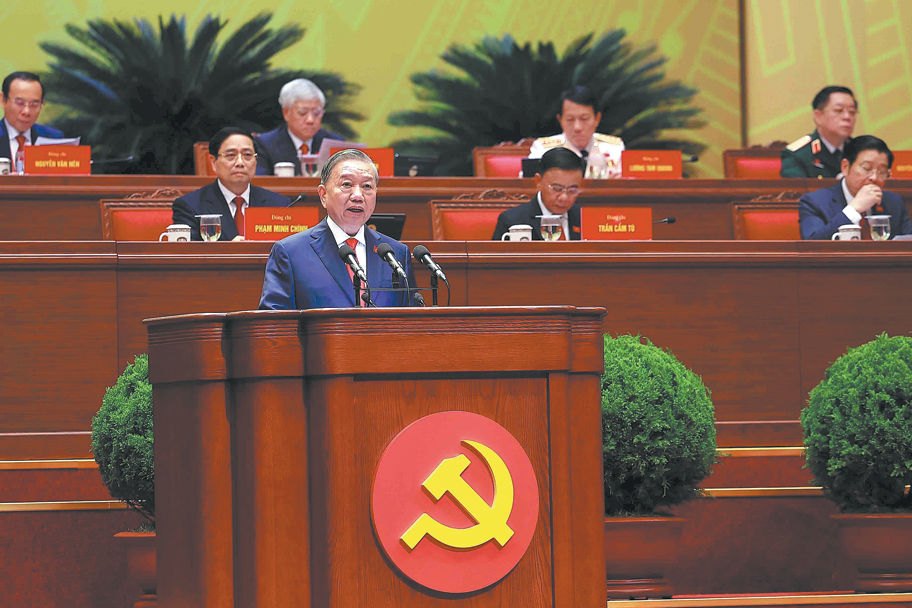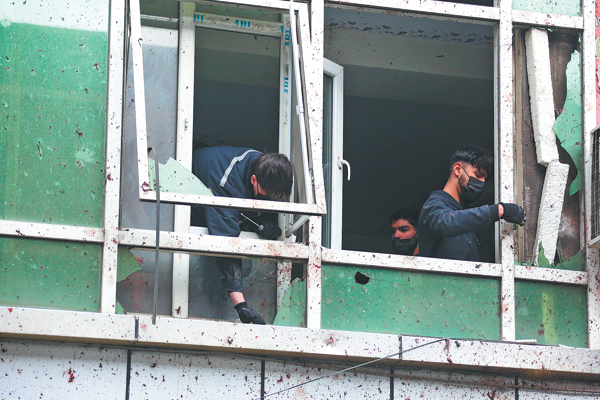Ukraine and Mideast conflicts in spotlight
Munich security meeting airs concerns on reduced focus on global cooperation


The 60th annual Munich Security Conference ended on Sunday with participants trying to find ways to resolve the two main conflicts between Russia and Ukraine and between Israel and Palestine and to tackle the new problems facing global order and governance.
More than 900 participants, including some 50 heads of state and government and over 100 ministers, attended this year's meeting titled "Lose-Lose?" from Friday to Sunday.
This year's conference report warned that given the growing geopolitical tensions and economic uncertainty, many governments are no longer focusing on the advantages of global cooperation but are increasingly concerned that they benefit less from international cooperation than others do.
It said such a focus could give rise to lose-lose dynamics, a downward spiral that endangers cooperation and undermines the existing global order.
United Nations Secretary-General Antonio Guterres said: "Today's global order is not working for everyone. … Our world is facing existential challenges, but the global community is more fragmented and divided than at any time during the past 75 years." He delivered a speech titled "Growing the Pie: A Global Order that Works for Everyone".
He voiced deep concern over the Ukraine and Gaza conflicts as well as the climate crisis and the risks of uncontrolled artificial intelligence.
"Multipolarity has created important opportunities for balance and justice, and for new leadership on the global stage. But the transition to multipolarity without strong global institutions can create chaos," he said.
Nana Akufo-Addo, president of Ghana, said growing the pie in itself is insufficient to deal with the problems the world has, and an equitable distribution of the pie is critical.
"This is the heart of the discussion that all of us should have," he said.
Barbados Prime Minister Mia Mottley echoed his views. She said the Caribbean island nation and others have been constrained by the 60 percent debt to GDP rules imposed by international financial institutions while most European states have reached a rate of 90 percent.
"What this means is that countries are kept on a trajectory that does not allow us to make the investment necessary to boost education, to boost healthcare," she said.
Demand for cease-fire
While the participants were meeting inside the Hotel Bayerischer Hof, thousands of people demonstrated on Saturday afternoon in Munich city center in a peace rally against NATO. They called for an immediate cease-fire in Gaza.
One man wearing a skeleton face mask in front of the long procession held the slogan "Against the NATO war conference", a message to the meeting that is still largely dominated by the United States and its NATO allies in Europe.
Palestinian Prime Minister Mohammad Shtayyeh argued on Sunday that the history of Palestine did not start on Oct 7 and that Palestinians' suffering started in 1948. He said he opposes the killing of civilians. "Now it's the time we find a solution … We need a recognition of the state of Palestine," he told the conference.
Saudi Foreign Minister Prince Faisal bin Farhan said on Saturday in a panel discussion that the only pathway toward security and stability in the Middle East, including Israel, was through the establishment of a Palestinian state.
"We are focused on a cease-fire and on an Israeli withdrawal from Gaza and we are focused on humanitarian access for the people of Gaza. What Israel is doing in Gaza will not make it safer, but rather will push a new generation toward extremism," he said.
His views were echoed by Egyptian Foreign Minister Sameh Shoukry. Shoukry said the lack of will from the international community is what has been obstructing the two-state solution for decades.
"The issue of displacement, which is a violation of international humanitarian law, whether internal or external, cannot be tolerated," he said.
Israeli President Isaac Herzog on Saturday accused Hamas of causing the "dire situation". He told the conference that the return of hostages held by Hamas is the most important issue on the agenda.
Russia and Iran officials were not invited this year by the conference despite its famous "Munich Rule" — Engage and interact with each other: Don't lecture or ignore one another. Conference Chairman Christoph Heusgen said the two nations did not seem open to meaningful dialogue.
Ukrainian President Volodymyr Zelensky attended the meeting on Saturday. He asked the US and other countries for more military aid and not to abandon Ukraine.






























